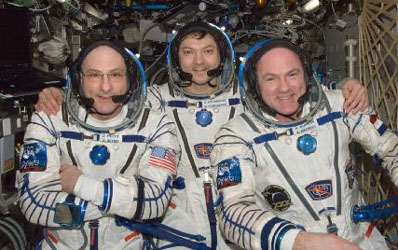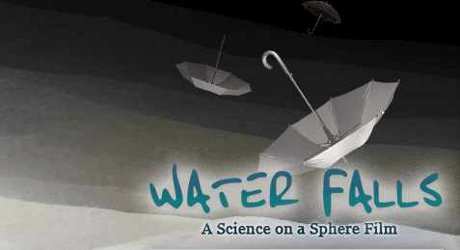Space Station Trio Lands in Kazakhstan
Three members of the Expedition 31 crew undocked from the International Space Station and returned safely to Earth today, July 1, wrapping up a mission that lasted six-and-a-half months.
Russian Commander Oleg Kononenko, NASA Flight Engineer Don Pettit and European Space Agency Flight Engineer Andre Kuipers (pictured above) landed their Soyuz TMA-03M spacecraft in Kazakhstan at 3:14 a.m. CDT (2:14 p.m. local time) after undocking from the space station’s Rassvet module at 11:47 p.m. June 30.
The trio, which arrived at the station Dec. 23, 2011, spent a total of 193 days in space, 191 of which were aboard the station.
Meanwhile, NASA invited its social media followers to the first-ever multi-center NASA Social on Aug. 3 to preview the landing of the Mars Science Laboratory’s Curiosity rover on Aug. 6 EDT (Aug. 5 PDT).
NASA Socials are in-person meetings with people who engage with the agency through Twitter, Facebook, Google+ and other social networks. (Read: NASA to Host Social Media Event for Mars Landing)
During their expedition, the crew supported more than 200 scientific investigations involving more than 400 researchers around the world. The studies ranged from integrated investigations of the human cardiovascular and immune systems to fluid, flame and robotic research.
Before leaving the station, Kononenko handed over command of Expedition 32 to the Russian Federal Space Agency’s Gennady Padalka, who remains aboard the station with NASA astronaut Joe Acaba and Russian cosmonaut Sergei Revin.
NASA astronaut Sunita Williams, Russian cosmonaut Yuri Malenchenko and Japan Aerospace Exploration Agency astronaut Akihiko Hoshide will join them July 17. Williams, Malenchenko and Hoshide are scheduled to launch July 14 from the Baikonur Cosmodrome in Kazakhstan.
During Expedition 31, Pettit also used household objects aboard the station to perform a variety of unusual physics experiments for the video series “Science Off the Sphere.”
Through these demonstrations, Pettit showed more than a million Internet viewers how space affects scientific principles.
Photo courtesy: NASA




